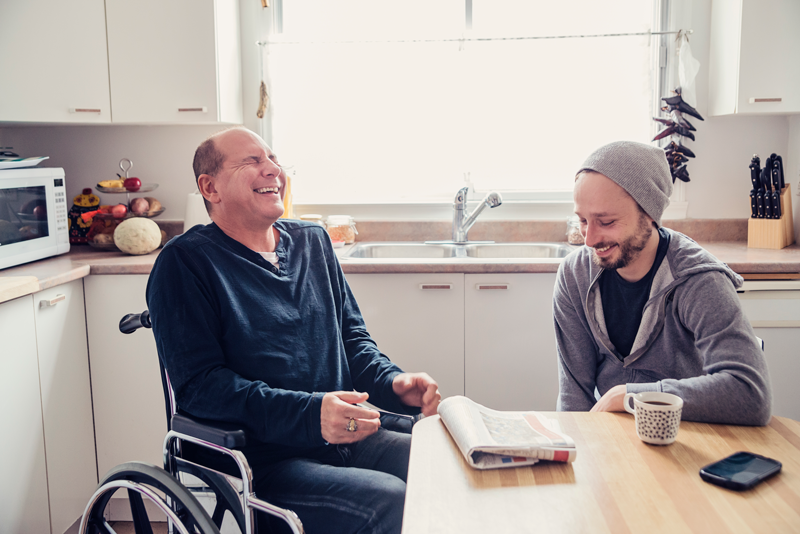




It is important that individuals are at the centre of the care planning process, so they feel that they are actively involved in their own care. Detailed and effective care planning can ensure all of their needs, wishes and preferences are met, and care packages should never be made without the involvement of the individual concerned.
In relation to health needs and preferences, holistic means seeing the whole individual, not just their physical health, but also their emotional, sexual, social, intellectual, mental and spiritual health needs and preferences. This information is valuable when creating the care plan.
Traditionally, health has been seen as mostly physical, but increasingly, it is usual, and good practice to consider an individual’s holistic health. Only concentrating on physical aspects of care could miss important needs, and as a consequence, as well as not caring for that aspect of their health, the physical side of an individual’s health may not improve.
Mae'n bwysig bod unigolion wrth wraidd y broses cynllunio gofal, er mwyn iddynt deimlo eu bod yn cael eu cynnwys yn eu gofal eu hunain. Gall gwaith cynllunio gofal manwl ac effeithiol sicrhau bod eu holl anghenion, dymuniadau a dewisiadau'n cael eu bodloni, ac ni ddylid byth creu pecynnau gofal heb gynnwys yr unigolyn dan sylw.
Mewn perthynas ag anghenion a dewisiadau iechyd, mae holistaidd yn golygu gweld yr unigolyn cyfan, nid dim ond ei iechyd corfforol, ond hefyd ei anghenion a'i ddewisiadau o ran iechyd meddwl ac iechyd emosiynol, rhywiol, cymdeithasol, deallusol ac ysbrydol. Mae'r wybodaeth hon yn werthfawr wrth greu'r cynllun gofal.
Yn draddodiadol, mae iechyd wedi cael ei weld fel rhywbeth corfforol yn bennaf, ond mae'n dod yn fwyfwy arferol ac yn arfer da ystyried iechyd holistaidd unigolyn. Gallai canolbwyntio ar agweddau corfforol ar ofal yn unig olygu bod anghenion pwysig yn cael eu colli, ac o ganlyniad i hynny, yn ogystal â pheidio â gofalu am yr agwedd honno ar iechyd yr unigolyn, mae'n bosibl na fydd ei iechyd corfforol yn gwella chwaith.

Being individual-centred is about listening to and learning about what individuals want from their lives, what they did and enjoyed in the past, and helping them to think about what they want now and in the future. The child or young person’s experience, history, culture, beliefs, preferences, family, relationships, informal networks and community are all key to establishing a way forward and meeting their needs to enable positive progress. Family, friends, professionals and services need to work together with the individual to make this happen.
Mae gweithredu mewn ffordd berson-ganolog yn golygu gwrando ar unigolion a dysgu am yr hyn y maent am ei gael o'u bywydau, yr hyn a wnaethant a'r hyn y gwnaethant ei fwynhau yn y gorffennol, a'u helpu i feddwl am yr hyn y maent yn ddymuno ei gael nawr ac yn y dyfodol. Mae profiad, hanes, diwylliant, credoau, dewisiadau, teulu, cydberthynas, rhwydweithiau anffurfiol a chymuned y plentyn neu'r person ifanc i gyd yn allweddol i ganfod ffordd ymlaen a diwallu ei anghenion er mwyn galluogi cynnydd cadarnhaol. Mae angen i aelodau o'r teulu, ffrindiau, gweithwyr proffesiynol a gwasanaethau gydweithio â'r unigolyn er mwyn sicrhau bod hyn yn digwydd.